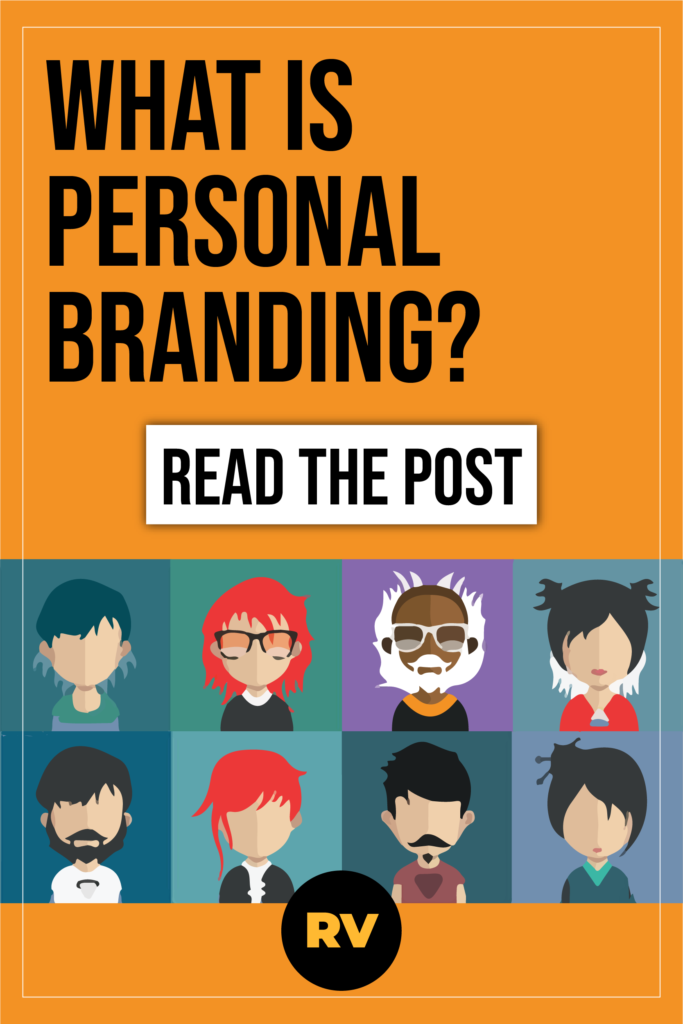You NEED to brand yourself, now more than ever.
Do you ever notice that people give you a feeling? There’s some sort of an imprint of energy you get by looking at someone’s Twitter profile, LinkedIn, or–as we once did– meeting somebody in person.
They look polished and professional. They are intriguing and have a clearly-defined area of expertise, whether it’s baking cupcakes or economic development. Their Twitter follower count skyrockets upward. Their LinkedIn articles always get comments. When you look at that person’s social media or LinkedIn profile, they seem to be in some alternative world of capability and achievement that will be hard for you to touch.
I’d like to suggest to you that, in many cases, these are people with a solid personal brand.
Now “branding” can seem like a gross word, and my spouse Carolyne–who’s also a graphic designer and brand builder–wrote post on it a while back.
As the world seems to be imploding right now, you may not be too worried about the need to brand yourself.
But I want to convince you that there has never been a better time to build a personal brand, particularly online. The entire world is online, almost all of the job opportunities right now are remote, and all of the future companies are not bricks-and-mortar. This is a time to show command of the digital space. And the brand is how you do that.
So in what follows, I want to convince you to take your brand seriously. Work hard on what people see when they see you online. Because it may be the difference between your dream career and unemployment.
Here’s why you need to brand yourself.
1. Opportunities come to you
I don’t know how often I’ve told somebody that they need to network, and they respond with “I hate networking.” While I do often think that people misunderstand what networking is, and everybody needs to network sometimes, there’s a simple solution to this.
What if people came to you instead?
Now if you’re asking yourself, “How the heck would people come to me?” Let me tell you.
In the old line from Field of Dreams: if you build it, they will come. In this case, the “it” is a personal brand.
Jeff Goins tells the story of how he struggled as an author. He wanted to get things published, and couldn’t. Then he started blogging. After he built an audience, the publishers started coming to him. He wrote a fascinating book called Real Artists Don’t Starve. Ironically, by starting a blog he got everything he wanted. And he built a million-dollar empire from it.
Now, you don’t need to start a blog. You might choose to do your work on LinkedIn, Twitter, YouTube, or Instagram. But you do need to find a place to get positive attention.
Start putting yourself out there, write, blog, tweet, post, and watch opportunities come to you.
2. You become an authority
You may know the name Reza Aslan. He’s a rockstar in my discipline of religious studies. Although he is a decent scholar, his true rise to fame came from a train-wreck interview with Fox News in 2013. He had written a new book about the life of Jesus. The host attacked Reza, repeatedly asking why he would be interested in Christianity as a Muslim. His calm demeanor and corrections of her assumptions caused the clip to go viral.
Laying knowledge smack-downs about religion is now his brand. If you see him on the news, he is often doing the same thing. He’s a good scholar. But the reason he’s asked on new shows and was recently given a show on CNN is not because of his publication record.
It’s because he’s a brand.
The same is true of Brené Brown. I don’t know if she’s considered the world’s top social-work scholar in her field. But after her TED talk on vulnerability went viral, she became one of the most sought-after academic speakers out there.
Even among scholars, the most well-known ones have often built a brand.
If you’re like me, the need to brand yourself does not mean appearances on major news networks. But it does often mean creating a presence online.
(In my life as a PhD, I’ve found that a blog can carry a lot more authority than a PhD. So why don’t more PhDs have great blogs?!)
Start posting thoughtful things, and watch your authority grow. Choose a space that you want to speak into, and watch as you become one of the best-known voices in that space.
It will happen.
If you want to start a blog, I wrote a post about it here.
3. You gain confidence
It took me months to publish my first blog. I’ve written hundreds of blog posts over the years that nobody ever saw. In fact, I created entire blogs that were never read.
Even before anyone ever read what I wrote, I felt disgusted by my own voice. I hated myself. The voices in my head said things like:
You’re not good enough to do this.
You used “then” instead of “than.” You call yourself a scholar?!
People will laugh at you if they read this.
Then people started actually reading what I wrote. And it was even more scary.
Believe it or not, this is terrifying. Pouring your heart out on the internet for strangers is not easy. Ask people who do it.
I don’t know how many times I’ve hit publish and then deleted something. I don’t know how many times I’ve been crushed over mean and even personal attacks on social media.
The more you do this, the thicker your skin gets. And eventually, you might decide that the cost of not saying what you want to say is greater than the cost saying it.
4. You can charge more
What would you say if I told you that I know freelance researchers who get paid $1,000 a day? What if I told you that I’ve met people who make $1,000 for an hour’s work?
For the most part, these people are brands. They are researchers, thinkers, speakers, who have a reputation for excellence. Companies know that if they hire these people, they will get not only a great product but also the person’s name behind it.
If you look closely at the policy space in the capital city of your country, you will probably find people just like this. Independent thinkers, whose opinions and voice are valued so much that they command top dollar for anything that they do.
And in this day and age, and especially post-pandemic, the people committing these sums of money can build their reputation online.
5. You can create your own career transition
One of the beautiful things that happens when you brand yourself is that you get to decide what you will become. This doesn’t have to live within the box of your degree. Branding yourself is a fantastic way to create a career transition.
For students who did a degree that doesn’t have immediate application in the “real world,” which many do not, branding yourself is a powerful transition tool.
Let me give you an example. Janine graduated with an English degree. She had no prospects, but she learned about marketing and was really interested in it. She did a few courses online and found herself a marketing internship, but while she did this she also started a marketing blog. After a while, she was considered an expert in the space, and employers started noticing her. Now she’s a marketing manager for a large company.
Her transition came through creating an image of herself. When people saw her LinkedIn profile, they associated her with expertise. And she was soon hired to be an expert, and paid like one too.
This is usually what happens. Creating a brand is the perfect way to transition from a lost student to an in-demand expert on a subject.
Conclusion
While the call to brand yourself might seem like a tall order, it doesn’t have to be overwhelming.
- Decide an area you want to be known for online. (Don’t be afraid to choose a niche. Science Comms is a huge field, pick a specific topic.)
- Create a profile that identifies your interest in that thing, whether it’s copywriting, environmental impact assessments, or astronomy.
- Try to post and share relevant things in that topic, especially on LinkedIn (which is the top career-branding site).
- Consider starting some sort of extra space to talk about this thing, whether it’s a blog, YouTube channel, or Instagram feed. Also consider submitting things for other people’s publications: blogs, op eds, etc.
- Follow people in that area and start conversations with them through commenting on their stuff, messaging, etc.
I’ll say more in a later post, but for now, just get started and watch where it takes you. You’ll be surprised at the results.
If you build it, they will come.






